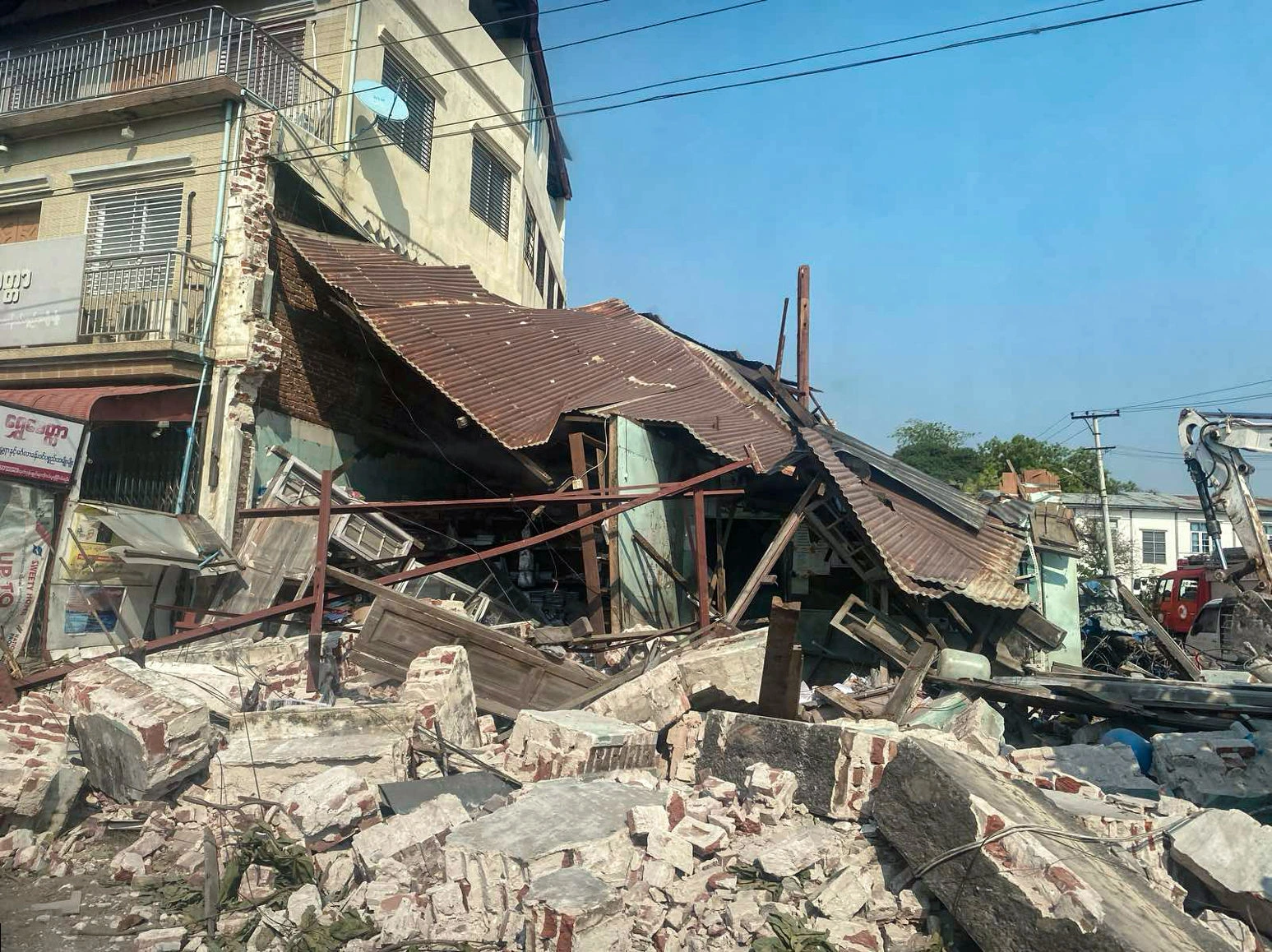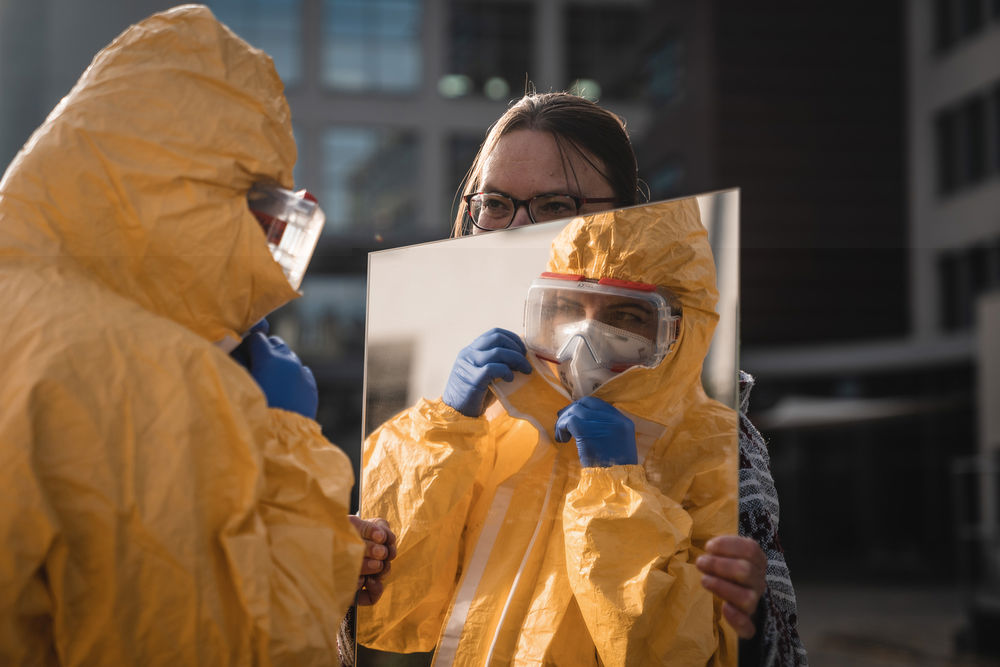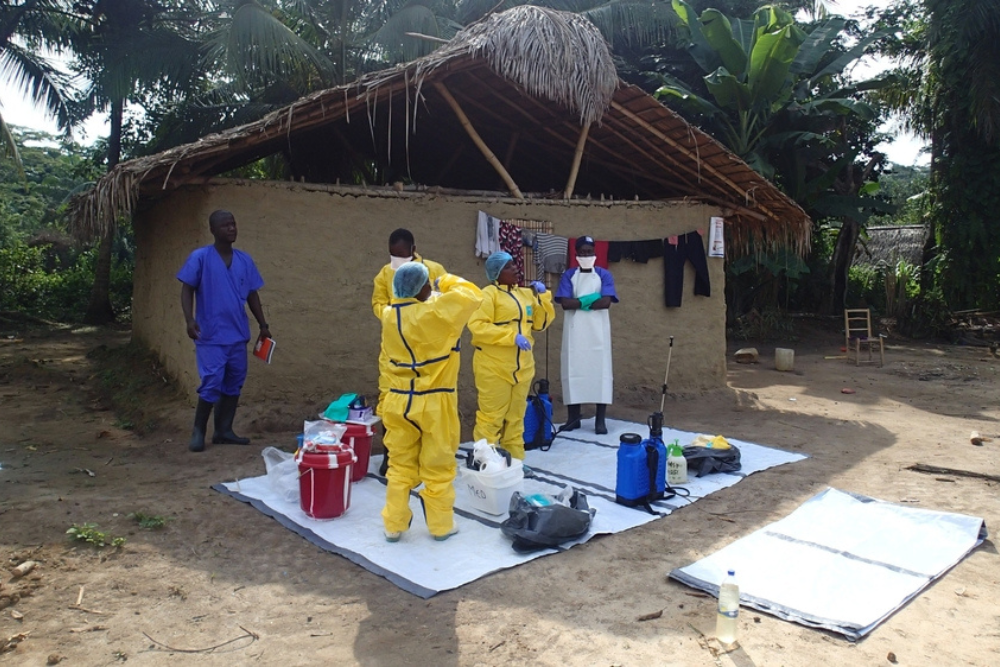11th of January 2023, the Ministry of Health of Uganda declared the end of the seventh Ebola outbreak that started on 20th of September 2022 in the country. In total, 142 people were confirmed as having Ebola during the period. 87 people recovered from the disease while 55 died. The Case Fatality Rate (CFR) among confirmed cases was of 39%. These cases were spread over 9 districts, the majority of which were in the neighboring districts of Mubende and Kassanda.
No new confirmed cases have been reported since the 27th of November 2022, and the last four patients were discharged as recoveries on 30th November. 42 days have now passed without any confirmed Ebola patients in the country, a delay that corresponds to twice the incubation period of the virus.
During the outbreak, Médecins Sans Frontières provided a strong and crucial support the Ministry of Health to reduce mortality via case management, to prevent the spread of the outbreak through outreach projects and to provide epidemiological expertise, in five districts of the country: Mubende, Kassanda, Kampala, Masaka and Jinja.
In total, MSF provided clinic care support to 107 confirmed Ebola patients and 1,125 suspect patients in two Ebola Treatment Centers (ETC) that the organization built in the city of Mubende, the initial epicenter of the outbreak. In Kampala, the Ugandan capital city, MSF assisted in the treatment of 11 confirmed Ebola patients and 91 suspects at the country’s Mulago National Isolation Center. At the end, 118 of the 142 confirmed cases (83%) of this seventh epidemic were treated in MSF-supported facilities.
MSF led and financed the technical design, construction, and installation of 6 Ebola Treatment Centers and Units over the course of this outbreak with a decentralized approach to facilitate the early diagnostic and quick care of patients. One 48-bed ETC and another 39-bed ETC were constructed in Mubende. 8-bed treatment units was constructed in next to existing healthcare centers in Madudu and Bweyongedde. A 40-bed ETC was constructed in Kassanda. Finally, a 32-bed semi-permanent ETC built in Kampala next to the Mulago National Referral Hospital will be used as training center.
In Mubende and Kassanda, 319 patients benefitted from MSF mental health and psycho-social support (MHPSS) in reintegration into their communities after having been discharged as non-Ebola cases and are being provided support as part of the survivors’ follow-up programme.
Donations in the form of medical supplies, drugs, infection prevention and control (IPC) items, water, sanitation and hygiene (WASH) materials, and logistics materials and equipment were made in all the districts where MSF was present. MSF also offered IPC and WASH trainings to the staff working in the ETCs.
MSF has provided extensive feedback to the survivors guidelines in all areas including mental health/psychosocial care, general clinical care, pregnant/breastfeeding women, pediatric care, etc. MSF is also providing short-term and as-needed support alongside Baylor-Uganda with regards to Community Engagement and health promotion activities linked to survivors, their families, families of non-survivors, and communities at large. Linked to this, MSF has engaged directly with the KALWANA EBOLA SURVIVORS ASSOCIATION to provide training and a one-time financial to promote health promotion and sensitization, dialoguing to address stigma, and support in restoring the trust in health facilities and reinforce good health seeking behavior.
In order to prevent the spread of the outbreak MSF conducted several outreach activities, such as infection prevention and control donations and trainings in 212 health facilities in Mubende and Kassanda and in 8 schools. 7 health facilities in Maska and Jinja’s neighbouring distrcts (Kamuli, and Luuka), were provided a comprehensive package of IPC support from MSF which included set up of entry screening points, set up holding areas for suspect cases, active case finding among admitted patients, medical and hygiene materials donations, and medical and wash training.
The health promotions teams reached 15,568 people in Mubende and Kassanda during community meetings on Ebola, hygiene, health seeking behavior and stigmatization. They also reached 19,530 people in schools, trading centers, markets, churches, and mosques thanks to mass gathering sensitizations that aimed to inform people about Ebola and protective measures. In addition, 891 people were reached in and around health facilities. Finally, when a new confirmed case was identified MSF teams reached 7,778 people in their direct environment and within the communities of high-risk contacts, to inform about sign and symptoms of Ebola and correct health seeking behaviour.
In Kampala, MSF conducted 4,666 door-to-door sessions, reaching out to more than 22,000 people. Additionally, 7 community meetings were organized with local stakeholders. Finally, MSF supported the continuity of non-Ebola care in 17 health facilities, mostly thanks to donations.
In terms of epidemiological support, MSF participated in case investigation and contact tracing. The teams were also involved in several aspects of strategic information research and innovation such as data collection and analytics, information products, digital tools, monitoring and evaluation. The data tools and the data collection system and sharing will be one of the subject of in-depth work with the MOH even in the post-epidemic period for better preparation for the future response.
MSF also supported laboratory capacities in Mubende, via equipment biochemistry and other donations, and Kassanda, via the construction of a lab space integrated into the ETC.
In total, MSF has supported the financial incentives of more than 150 staff from the Ministry of Health, while mobilizing over 330 Ugandan MSF staff and 74 international staff.
Following this outbreak, MSF remains committed to capacity building of Ugandan Emergency Response teams to ensure strong preparedness and skillsets for future response efforts. To this end, MSF is working with the Ministry of Health to reflect on the contours of our future collaboration, especially through the training and capacity building of Ugandan staff at the new ETC training facility in Kampala. From December 20th to 23rd, MSF already trained a team of 45 heath workers and hygienists from the Ministry of Health on how to operate an ETC. Specifically, this training included the following modules: Overview of Ebola Virus Disease (EVD), Fundamental Case Recognition and Management for EVD, Principles of working in an ETC (incl. PPE, Donning/Doffing, Infection prevention, Waste Management, Layout and Patient flow).




